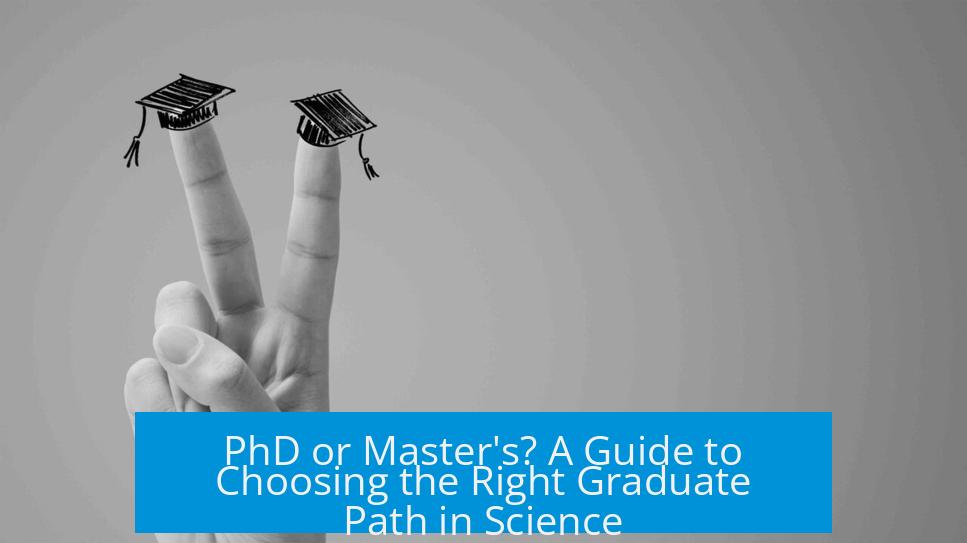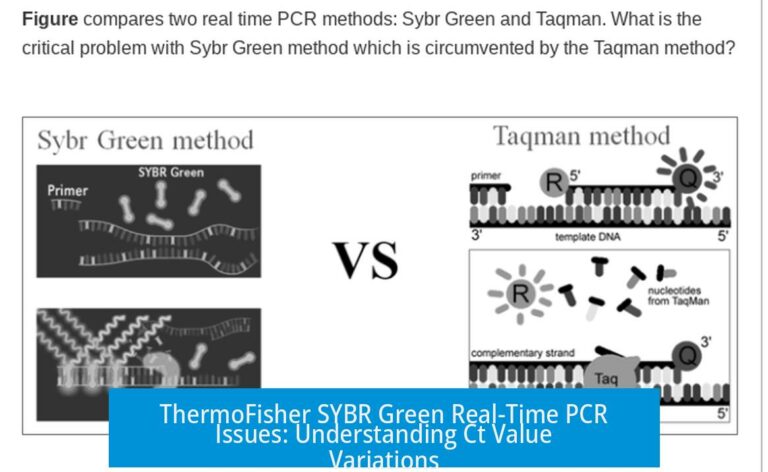PhD or Master’s? Choosing the Right Path in Science

The choice between pursuing a PhD or a Master’s degree depends primarily on one’s career goals, financial considerations, and the job market expectations. This article explores these factors, offering detailed insights into which path may suit different professional aspirations within science and related fields.
1. Aligning Degree Choice with Career Objectives
Leadership and Research Ambitions
Individuals aiming to lead research projects or manage their own teams generally benefit from pursuing a PhD. This degree equips them with the skills and credentials required for advanced scientific leadership roles.
General Science Involvement
If one is comfortable with participating in science roles without leading projects, a Bachelor’s degree may suffice. However, mobility and advancement opportunities are limited without higher qualifications such as a Master’s or PhD.
Mobility and Advancement
Higher degrees increase professional mobility and open doors to advanced positions in academia or industry. Thus, understanding long-term goals is critical before selecting a degree path.
2. Financial Considerations and Tuition Assistance
Tuition Assistance from Employers
Many companies offer tuition assistance for Master’s programs to employees who join after undergraduate studies. This can offset the cost of graduate education significantly, typically offering between $5,000 and $7,500 annually.
Conditions of Assistance
These benefits usually come with conditions. Employees may be required to stay with the company for at least 12 months after receiving tuition assistance, or repay the amount. This factor should influence the decision to pursue a Master’s while employed.
3. Strategic Considerations: PhD Applications to Obtain a Master’s
Advantages of Applying for PhD Programs First
- PhD programs generally offer tuition waivers and stipends, whereas Master’s students often pay tuition.
- Students have the flexibility to “pull the ripcord” and exit with a Master’s degree after completing initial requirements.
- Switching from a Master’s to a PhD later is usually more complicated than starting with a PhD track.
This strategy can provide financial and academic benefits, allowing students to receive funding and decide on completing the PhD based on progress and interest.
4. Gaining Experience Before Graduate School
Work Experience Benefits
Taking a year or more to work as a lab technician or in a campus lab offers practical experience. Some institutions may offer academic credits for such roles.
CV Enhancement
Experience gained before graduate school significantly strengthens one’s CV. It can also clarify whether advanced degrees are necessary for career success.
Industry Transition
Some graduates find satisfaction and career stability by entering industry positions directly, leveraging their Bachelor’s degrees complemented by work experience.
5. The Value and Limitations of a Master’s Degree Compared to Bachelor’s
Limited Additional Opportunities
A Master’s degree does not always provide significantly more job opportunities than a Bachelor’s. Many positions still do not require a Master’s, although it can be beneficial for specific technical roles or specialized fields.
Funding Challenges
Master’s programs are typically not funded, which may deter some from pursuing this option without employer support.
Recommended Scenarios for Master’s
A Master’s is recommended when an individual needs to improve a weak undergraduate record, aims for a specialized skill set, or prepares to enter certain niche roles in the marketplace.
Job Market and Salary
Job seekers with only a Bachelor’s degree often find employment but may face lower starting salaries and limited advancement compared to peers with a Master’s.
6. Regional Perspectives: Insights from the European Union
Entry-Level Job Market
In the EU, a Bachelor’s often qualifies candidates for entry-level lab work, such as quality control positions. This can be suitable for gradual career growth within laboratory settings.
Master’s as the New Standard
Employer expectations increasingly favor candidates with a Master’s degree for many entry-level science jobs. Applications with only a Bachelor’s often receive fewer interview callbacks.
Promotion and Advancement
Between candidates of similar experience, those holding a Master’s degree generally have an advantage in promotion considerations.
7. Recommendations for Research-Oriented Careers
For those pursuing research-intensive careers, applying directly to PhD programs is advisable. A PhD program provides comprehensive research training and offers the option of exiting with a Master’s degree if desired. This approach balances flexibility with long-term ambition.
8. Impact of Master’s Program Formats on Career Progression
Course-Based Master’s Programs
Online, course-based Master’s degrees without practical lab components may not offer significant career advantages beyond a Bachelor’s degree.
Hands-On Training
Master’s programs that include hands-on wet lab training better prepare candidates for technical and research roles, enhancing employability and skill development.
Key Takeaways
- PhDs suit those targeting leadership and research roles, while Master’s degrees serve specialized or advancement purposes.
- Financial support for Master’s is often employer-dependent, whereas PhD studies frequently include stipends and tuition waivers.
- Applying for a PhD provides flexibility and better funding than pursuing a Master’s alone.
- Work experience prior to graduate study strengthens resumes and clarifies career paths.
- Master’s degrees may offer limited advantages unless specialized or required for specific jobs.
- Regional job markets, especially in the EU, increasingly expect a Master’s for many entry-level science positions.
- Hands-on training in graduate programs enhances practical skills and marketability.
What career goals favor pursuing a PhD over a Master’s?
If you want to lead research projects and manage a team, a PhD is better.
For general involvement in science, a Master’s or even Bachelor’s may suffice.
How does tuition assistance influence choosing a Master’s program?
Some companies offer $5K-$7.5K yearly for Master’s tuition.
Repayment is required if you leave the job soon after receiving support.
Is it advantageous to apply directly for a PhD rather than a Master’s?
Yes. PhD programs often cover tuition and provide stipends.
You can exit early with a Master’s degree if needed.
Starting with a Master’s then switching to a PhD is more complex.
Does working before graduate school improve your chances?
Working as a lab technician before grad school boosts your CV.
Some positions count as credits, making grad school easier.
How valuable is a Master’s degree compared to a Bachelor’s?
Masters do not greatly increase job opportunities over a Bachelor’s.
They are usually not funded and might not improve pay much.
Useful if you want specialized skills or aim for a PhD.
What is the job market like for Bachelor’s versus Master’s holders in the EU?
Bachelor’s often lead to entry-level roles like QC lab work.
Most jobs require a Master’s as the new standard.
Promotion prospects favor those with Master’s degrees.





Leave a Comment